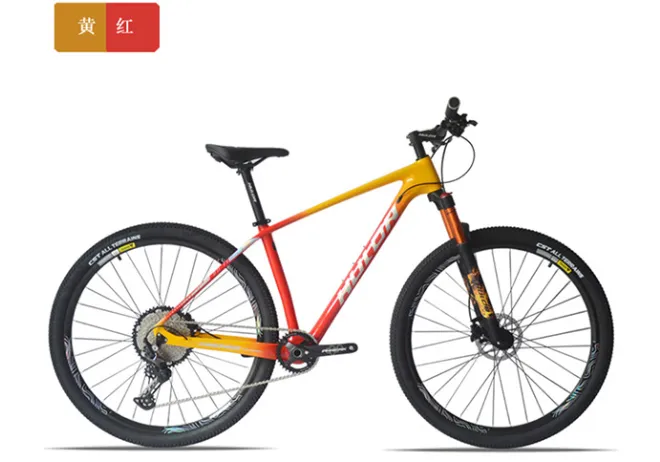
- Afrikaans
- Albanian
- Amharic
- Arabic
- Armenian
- Azerbaijani
- Basque
- Belarusian
- Bengali
- Bosnian
- Bulgarian
- Catalan
- Cebuano
- Corsican
- Croatian
- Czech
- Danish
- Dutch
- English
- Esperanto
- Estonian
- Finnish
- French
- Frisian
- Galician
- Georgian
- German
- Greek
- Gujarati
- Haitian Creole
- hausa
- hawaiian
- Hebrew
- Hindi
- Miao
- Hungarian
- Icelandic
- igbo
- Indonesian
- irish
- Italian
- Japanese
- Javanese
- Kannada
- kazakh
- Khmer
- Rwandese
- Korean
- Kurdish
- Kyrgyz
- Lao
- Latin
- Latvian
- Lithuanian
- Luxembourgish
- Macedonian
- Malgashi
- Malay
- Malayalam
- Maltese
- Maori
- Marathi
- Mongolian
- Myanmar
- Nepali
- Norwegian
- Norwegian
- Occitan
- Pashto
- Persian
- Polish
- Portuguese
- Punjabi
- Romanian
- Russian
- Samoan
- Scottish Gaelic
- Serbian
- Sesotho
- Shona
- Sindhi
- Sinhala
- Slovak
- Slovenian
- Somali
- Spanish
- Sundanese
- Swahili
- Swedish
- Tagalog
- Tajik
- Tamil
- Tatar
- Telugu
- Thai
- Turkish
- Turkmen
- Ukrainian
- Urdu
- Uighur
- Uzbek
- Vietnamese
- Welsh
- Bantu
- Yiddish
- Yoruba
- Zulu
Dec . 13, 2024 17:49 Back to list
Exploring the Benefits of Lightweight Carbon Fiber Electric Bicycles for Efficient Travel
The Rise of Carbon E-Bikes Revolutionizing Sustainable Transportation
In recent years, the world has witnessed a surge in the popularity of electric bikes (e-bikes), driven by the need for sustainable and efficient urban transportation solutions. Among the many innovations in this field, carbon e-bikes stand out as a remarkable advancement, combining the lightweight properties of carbon fiber with the energy efficiency of electric motors. This blend of materials and technology is not only transforming how we commute, but it also plays a significant role in reducing our carbon footprint and promoting sustainable living.
What Are Carbon E-Bikes?
Carbon e-bikes are electric bicycles that utilize carbon fiber in their frames and components. Carbon fiber is a material known for its impressive strength-to-weight ratio, making it lighter and often more durable than traditional aluminum or steel frames. This unique characteristic is particularly valuable for e-bikes, which can benefit from reduced weight to enhance speed, agility, and overall riding experience.
Equipped with electric motors and batteries, carbon e-bikes offer pedal-assist functionalities that help riders tackle challenging terrains and long distances with ease. Riders can choose the level of assistance they require, allowing for a customizable experience that caters to their individual fitness levels and commuting needs.
The Environmental Impact
One of the most compelling reasons to consider carbon e-bikes is their positive environmental impact. Conventional vehicles are major contributors to greenhouse gas emissions, pollution, and traffic congestion. In contrast, e-bikes operate on electricity, emitting zero emissions while in use. Even when considering the full lifecycle emissions associated with electricity generation, e-bikes still present a significantly lower carbon footprint compared to cars.
Furthermore, carbon e-bikes encourage the use of active transportation. By promoting cycling over driving, cities can alleviate traffic congestion, reduce noise pollution, and lower air pollution levels. As urban populations grow, the shift toward cleaner commuting alternatives becomes increasingly essential. Governments and city planners are recognizing this trend, and many are implementing bike-friendly infrastructure and incentivizing green transportation options.
carbon ebike

Performance and Rider Experience
The performance of carbon e-bikes is another key factor contributing to their growing popularity. The lightweight nature of carbon fiber allows for a responsive and agile ride, appealing to both casual commuters and avid cyclists. Riders can enjoy a faster and more enjoyable experience without the cumbersome weight associated with traditional e-bikes.
The integration of advanced technology further enhances the cycling experience. Many carbon e-bikes come equipped with smart features, such as smartphone connectivity, GPS tracking, and performance monitoring. These technological advancements not only provide riders with valuable data but also enhance safety and convenience on the road. For instance, built-in navigation and theft protection can significantly improve the overall ownership experience.
Challenges and Considerations
Despite their numerous advantages, carbon e-bikes are not without challenges. The cost of manufacturing carbon fiber frames is higher than traditional materials, which can make these e-bikes more expensive. However, as technology advances and production methods improve, it is likely that prices will decrease, making them more accessible to a broader audience.
Additionally, the sustainability of carbon fiber itself has come under scrutiny. While carbon fiber is lightweight and strong, the process of producing it can be energy-intensive. Researchers are investigating ways to improve the sustainability of carbon production and find alternatives that will keep pace with the increasing demand for eco-friendly materials.
Conclusion
Carbon e-bikes represent a pivotal development in sustainable transportation, offering an efficient, environmentally friendly alternative to traditional vehicles. By leveraging lightweight materials and cutting-edge technology, they enhance the commuter experience while significantly reducing carbon emissions. As urban areas continue to face challenges related to pollution and traffic, carbon e-bikes could play a crucial role in shaping the future of mobility. With ongoing advancements in technology and material science, we can expect to see carbon e-bikes becoming even more integrated into our urban landscapes, making sustainable commuting not only practical but also appealing. Embracing this innovation could lead to a cleaner, greener, and more connected world where everyone can enjoy the benefits of eco-friendly transportation.
-
The Ultimate Kids' Four-Wheeler Experience
NewsJul.09,2025
-
The Ultimate Guide to Mountain Bikes: Gear Up for Your Ride
NewsJul.09,2025
-
The New Age of Cycling: Electric Bikes for Every Rider
NewsJul.09,2025
-
The Best Kids Bicycles: Ride in Style and Safety
NewsJul.09,2025
-
The Best 3-Wheel Scooters for Kids: Fun, Safety, and Adventure
NewsJul.09,2025
-
Revolutionize Your Ride: Affordable Electric Bikes
NewsJul.09,2025
-
Finding the Perfect Mountain Bike for Every Rider
NewsJul.09,2025



